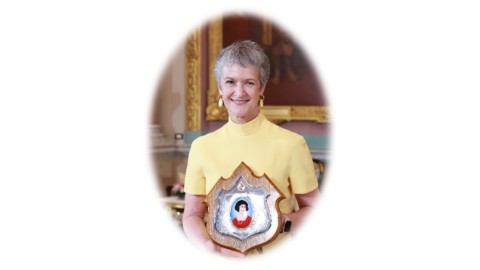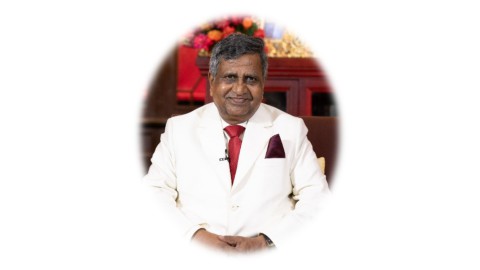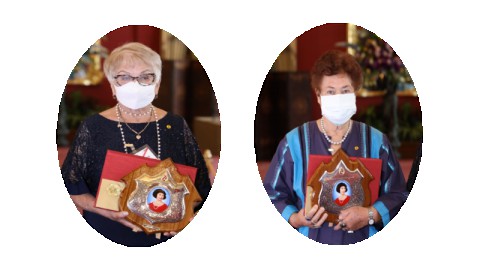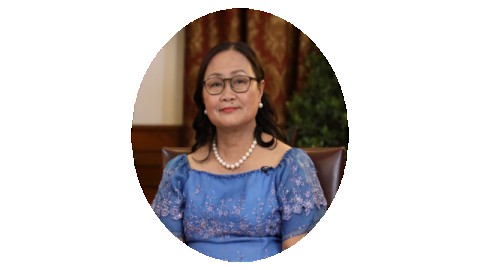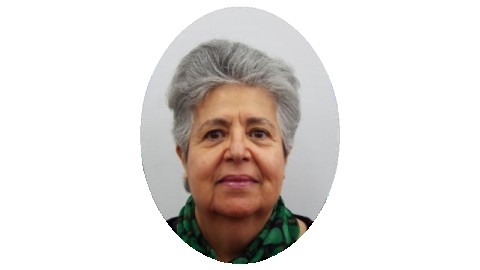
Princess Srinagarindra Award Foundation
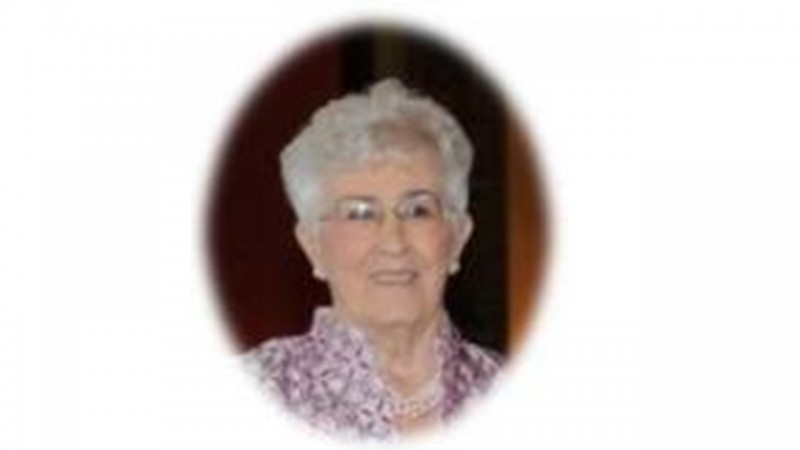
Professor Emerita Dr. Loretta C. Ford, Laureate2010
Professor Emerita Dr. Loretta C. Ford, an American with 90 years of age, earned her advanced degree from Schools of Nursing and Education, University of Colorado. Dr. Ford is an internationally known as the founder and “mother” of the Nurse Practitioner movement in the USA. Identifying the need for increased health care in rural communities, Dr. Ford initiated the role in collaboration with Dr. Henry Silver at the University of Colorado. The nurse practitioners role emerged thorough and onslaught of disbelievers and doubters to become one of the most trusted and valued providers of health care in many settings in the USA and around the world.
Dr. Ford has devoted her long career to practice, education, research, consultation and influencing health services, community health and military nursing. Currently, she consults and lectures on the historical development of the Nurse Practitioner and on issues in Advanced Nursing Practice in Health Care.
In the mid 1960’s the citizens of the USA were in a time of upheaval. The war being waged in Viet Nam was causing much unrest and distress; the issues of racial integration were being tested; gender issues were bringing about questions of equality and fairness in the workplace; the lack of health care services among rural populations; and many nurses with higher education were frustrated with their traditional role, all added to the impetus for beginning the Nurse Practitioner role. Dr. Ford with Dr. Silver started the First Nurse Practitioner Program at School of Nursing, University of Colorado in 1965. The program was limited to pediatrics with physicians and nurses teaching a concentrated 4 month course with classroom and clinical practice followed by an 8 month supervised clinical preceptorship. There were three goals: 1) prepare academically qualified and experienced public health nurses to provide comprehensive well-child care and study the Pediatric Nurse Practitioner model and role; 2) prepare the nurses for emergencies that might occur in the community; and 3) integrate the program into graduate curricula. At the beginning of the program, Dr. Ford was facing with the resistance from nursing faculties and was questioned whether this expansion of nurses’ role was legal, or was it nursing at all, etc. However, in the early 1970s, Health, Education and welfare Secretariat established the Committee to Study Extended Roles for Nurses. From this study they concluded that extending the scope of nurses’ role was essential to providing equal access to health care for Americans. Thus, nurse practitioner program began to flourish throughout many school of nursing. Dr. Ford’s vision of expanding the traditional nurse role has grown to become one of the most sought after graduate nursing programs and popular practice positions in today’s nursing discipline. The educational preparation of this nurse practitioner role has moved from certificate education to Master in 1970s and to the Doctor of Nursing Practice now in the USA.
The impact of this professional nurse has moved nursing forward as well as created innovations in the delivery of primary care in the nation. There are additional areas of impact but perhaps one of the most important is that the patient has increased access to primary care services; providing service to the impoverished and becoming a recognized provider in the public and private health care system in the nation are additional accomplishments.
However, the barrier that faced the nurse practitioner role and that Dr. Ford addressed as she continued to promote and prepare nurses for this role was the legality to practice in each state. The scope of practice, which including making a diagnosis and prescribing medications was different in each state of the nation and the nurse practitioner leaders had to learn how to write, introduce and promote legislation through the legislature of their respective states. It was also a time when organized medicine began to wage battles against the nurse as practicing “Medicine” and court battles ensued. “Getting to the table and being a player” in addressing these issues was the tactic that Dr. Ford used to address these challenges and win these battles. The use of the media and Dr. Ford’s ability to articulate “the scope of the role was nursing… and nursing was not a substitute for medicine and medicine was not a substitute for nursing”…assisted to quell the challenges. The ability to address these issues was a result of publications about the nurse practitioner, the care being provided; education the nurse received and documented research on the role. By 1985 over 1,000 publications attested to the positive outcomes of the nurse practitioner model of care.
when considering the establishment of the nurse practitioner role, Dr. Ford suggested the leaders and nurse practitioner to work together and speak with one voice, using language the public officials understand, and identify nursing issues that the public officials will ‘buy into’. Nurses must become politically involved and demonstrate “self interest” in the issues and changes necessary. Nurses and nurse practitioners must learn to contribute, gain ‘political acumen’ , form coalitions with others who are interested in improving health care and gain access to the policy making arena through appointments to public office; and last nurse practitioners and nurse leaders must become proactive leaders’ when working with public officials. With this approach the public officials and policy makers will recognize nursing has an understanding of the necessary resources for change and are willing to be accountable and responsible for their professional actions.
Today, after 45 years, there are 150,000 nurse practitioners in the USA alone; many more are practicing around the globe; Canada, Europe, Australia and Asia. In Thailand, the government has set the policy to fill at least one nurse practitioner at every health promoting hospital/primary care unit throughout the country. Nurse practitioners are serving in every specialty and every venue, and are a vital part of health care delivery. They have proven themselves to be confident, competent, courageous, compassionate and cost effective. The expansion of the nurse role as opened the door to initiate new positions in practice, economic cost saving models of care and promoting healthy lifestyles and not just focusing on disease management. To further strengthening nurse practitioners around the world, The International Council of Nurses has established International Advanced Practice Nurse/Nurse Practitioner network and has set the scope of practice according to the context of each country. However, the educational preparation has preferable at least Master level with Board Certified to practice in nurse practitioner role.
In her long leadership career of caring for patients, supervisory and administrative positions in service and academe, university teaching, Dr. Ford has received much national and international recognition. For example, Gustav O. LIENGARD Award for outstanding achievement in improving healthcare in America from Institute of Medicine. Woman of the Year in Education Award, Rochester AAUW; Modern Health Care Hall of Fame; Elizabeth Blackwell A ware, Hobart Williams Smith College; Trailblazer’s A ward, American College of Nurse Practitioners; Second Century Award for Excellence in Health Care, Columbia University School of Nursing. Dr. Ford is Charter Fellow of the American Academy of Nursing, an Honorary Fellow of the American Academy of Nurse Practitioners and senior member of the Institute of Medicine and the National Academy of Sciences. Dr. Ford also holds Honorary Doctorates from seven prestigious Universities. She has authored over one hundred fifty publications on the history of the Nurse Practitioner, Unification of Practice, Education, and Research, and Issues in Advanced Nursing Practice.
Professor Dr. Loretta Ford is one of the icons in nursing for the 20th Century. Her commitment to the profession of nursing and most especially to advanced nursing practice has changed the practice of nursing on every continent. This pivotal change in the delivery of primary care has affected underserved populations throughout the world. Only through Dr. Ford’s persistent vision and leadership was this dynamic changed instituted and thrived. The committee of the Princess Srinagraindra Award Foundation under the Royal Patronage has come to the final resolution to award Professor Dr. Loretta Ford the Princess Srinagarindra Award of the year 2010.
Professor Emerita Dr. Loretta C. Ford, an American with 90 years of age, earned her advanced degree from Schools of Nursing and Education, University of Colorado. Dr. Ford is an internationally known as the founder and “mother” of the Nurse Practitioner movement in the USA. Identifying the need for increased health care in rural communities, Dr. Ford initiated the role in collaboration with Dr. Henry Silver at the University of Colorado. The nurse practitioners role emerged thorough and onslaught of disbelievers and doubters to become one of the most trusted and valued providers of health care in many settings in the USA and around the world.
Dr. Ford has devoted her long career to practice, education, research, consultation and influencing health services, community health and military nursing. Currently, she consults and lectures on the historical development of the Nurse Practitioner and on issues in Advanced Nursing Practice in Health Care.
In the mid 1960’s the citizens of the USA were in a time of upheaval. The war being waged in Viet Nam was causing much unrest and distress; the issues of racial integration were being tested; gender issues were bringing about questions of equality and fairness in the workplace; the lack of health care services among rural populations; and many nurses with higher education were frustrated with their traditional role, all added to the impetus for beginning the Nurse Practitioner role. Dr. Ford with Dr. Silver started the First Nurse Practitioner Program at School of Nursing, University of Colorado in 1965. The program was limited to pediatrics with physicians and nurses teaching a concentrated 4 month course with classroom and clinical practice followed by an 8 month supervised clinical preceptorship. There were three goals: 1) prepare academically qualified and experienced public health nurses to provide comprehensive well-child care and study the Pediatric Nurse Practitioner model and role; 2) prepare the nurses for emergencies that might occur in the community; and 3) integrate the program into graduate curricula. At the beginning of the program, Dr. Ford was facing with the resistance from nursing faculties and was questioned whether this expansion of nurses’ role was legal, or was it nursing at all, etc. However, in the early 1970s, Health, Education and welfare Secretariat established the Committee to Study Extended Roles for Nurses. From this study they concluded that extending the scope of nurses’ role was essential to providing equal access to health care for Americans. Thus, nurse practitioner program began to flourish throughout many school of nursing. Dr. Ford’s vision of expanding the traditional nurse role has grown to become one of the most sought after graduate nursing programs and popular practice positions in today’s nursing discipline. The educational preparation of this nurse practitioner role has moved from certificate education to Master in 1970s and to the Doctor of Nursing Practice now in the USA.
The impact of this professional nurse has moved nursing forward as well as created innovations in the delivery of primary care in the nation. There are additional areas of impact but perhaps one of the most important is that the patient has increased access to primary care services; providing service to the impoverished and becoming a recognized provider in the public and private health care system in the nation are additional accomplishments.
However, the barrier that faced the nurse practitioner role and that Dr. Ford addressed as she continued to promote and prepare nurses for this role was the legality to practice in each state. The scope of practice, which including making a diagnosis and prescribing medications was different in each state of the nation and the nurse practitioner leaders had to learn how to write, introduce and promote legislation through the legislature of their respective states. It was also a time when organized medicine began to wage battles against the nurse as practicing “Medicine” and court battles ensued. “Getting to the table and being a player” in addressing these issues was the tactic that Dr. Ford used to address these challenges and win these battles. The use of the media and Dr. Ford’s ability to articulate “the scope of the role was nursing… and nursing was not a substitute for medicine and medicine was not a substitute for nursing”…assisted to quell the challenges. The ability to address these issues was a result of publications about the nurse practitioner, the care being provided; education the nurse received and documented research on the role. By 1985 over 1,000 publications attested to the positive outcomes of the nurse practitioner model of care.
when considering the establishment of the nurse practitioner role, Dr. Ford suggested the leaders and nurse practitioner to work together and speak with one voice, using language the public officials understand, and identify nursing issues that the public officials will ‘buy into’. Nurses must become politically involved and demonstrate “self interest” in the issues and changes necessary. Nurses and nurse practitioners must learn to contribute, gain ‘political acumen’ , form coalitions with others who are interested in improving health care and gain access to the policy making arena through appointments to public office; and last nurse practitioners and nurse leaders must become proactive leaders’ when working with public officials. With this approach the public officials and policy makers will recognize nursing has an understanding of the necessary resources for change and are willing to be accountable and responsible for their professional actions.
Today, after 45 years, there are 150,000 nurse practitioners in the USA alone; many more are practicing around the globe; Canada, Europe, Australia and Asia. In Thailand, the government has set the policy to fill at least one nurse practitioner at every health promoting hospital/primary care unit throughout the country. Nurse practitioners are serving in every specialty and every venue, and are a vital part of health care delivery. They have proven themselves to be confident, competent, courageous, compassionate and cost effective. The expansion of the nurse role as opened the door to initiate new positions in practice, economic cost saving models of care and promoting healthy lifestyles and not just focusing on disease management. To further strengthening nurse practitioners around the world, The International Council of Nurses has established International Advanced Practice Nurse/Nurse Practitioner network and has set the scope of practice according to the context of each country. However, the educational preparation has preferable at least Master level with Board Certified to practice in nurse practitioner role.
In her long leadership career of caring for patients, supervisory and administrative positions in service and academe, university teaching, Dr. Ford has received much national and international recognition. For example, Gustav O. LIENGARD Award for outstanding achievement in improving healthcare in America from Institute of Medicine. Woman of the Year in Education Award, Rochester AAUW; Modern Health Care Hall of Fame; Elizabeth Blackwell A ware, Hobart Williams Smith College; Trailblazer’s A ward, American College of Nurse Practitioners; Second Century Award for Excellence in Health Care, Columbia University School of Nursing. Dr. Ford is Charter Fellow of the American Academy of Nursing, an Honorary Fellow of the American Academy of Nurse Practitioners and senior member of the Institute of Medicine and the National Academy of Sciences. Dr. Ford also holds Honorary Doctorates from seven prestigious Universities. She has authored over one hundred fifty publications on the history of the Nurse Practitioner, Unification of Practice, Education, and Research, and Issues in Advanced Nursing Practice.
Professor Dr. Loretta Ford is one of the icons in nursing for the 20th Century. Her commitment to the profession of nursing and most especially to advanced nursing practice has changed the practice of nursing on every continent. This pivotal change in the delivery of primary care has affected underserved populations throughout the world. Only through Dr. Ford’s persistent vision and leadership was this dynamic changed instituted and thrived. The committee of the Princess Srinagraindra Award Foundation under the Royal Patronage has come to the final resolution to award Professor Dr. Loretta Ford the Princess Srinagarindra Award of the year 2010.
HASHTAG : #Professor Emerita Dr. Loretta C. Ford Laureate2010 #Laureate2010 #Professor Emerita Dr. Loretta C. Ford #Awardee2010
